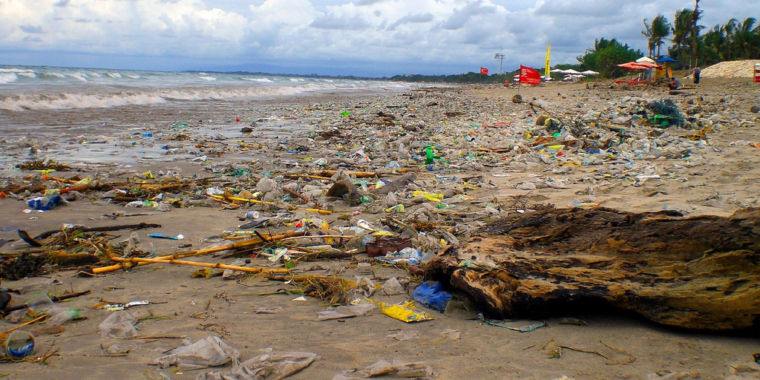
After solar cost reduction below Rs 3/unit, wind power cost down to Rs 3.46/ unit through transparent auction - a green future awaits India.

Eminent physicist Jo Hermans acknowledges that achieving sustainable transport in the post-fossil fuel era will be a huge challenge— but finds that liquid hydrogen could offer a potential solution for future air travel.

Dell project will recycle "ocean plastic" into product packaging.

California Senate leader introduces 100% renewable energy bill by 2045, competing with Hawaii for most aggressive renewable energy mandate in US.

Investors are being urged to engage with banks using their voting rights to increase the role banks play in the transition to a low-carbon economy.

Belgian architect and visionary Vincent Callebaut suggested a new urban design concept that emphasizes sustainability and puts a particular focus on the treatment of our oceans.

Australian Architectural firm McGregor Coxall has won a competition to design a wetland bird sanctuary in Tianjin, China. The winning entry will be the world's first migratory "bird airport."

The Indian government has given the second phase of their solar parks program a green light and has increased their target to 40 gigawatts.

VegeBlock contributes to sustainable development and the implementation of the green construction concept through the re-use of materials that might otherwise be disposed of as waste.

The World Bank's board of executive directors has approved $55.25 million in grants to support geothermal energy projects in Indonesia with the aim to facilitate investment in geothermal power generation.

Newly added wind capacity in Europe totalled 12.5GW in 2016, a 3% drop on 2015, but becomes the region's second largest source of power generation.

Cities are facing growing challenges, including congested roads and the need to supply energy for expanding populations.

Sydney Airport in Australia has been accredited at Level 3 of the Airports Council International’s Airport Carbon Accreditation program in recognition of its efforts to involve business partners in reducing its carbon footprint.

Nontoxic nanoparticles make rewritable paper that can be printed and erased more than 80 times.